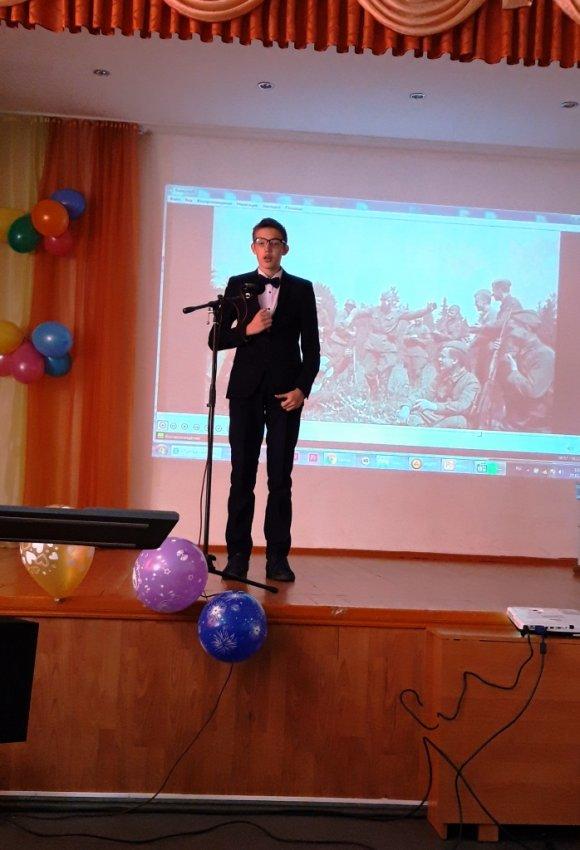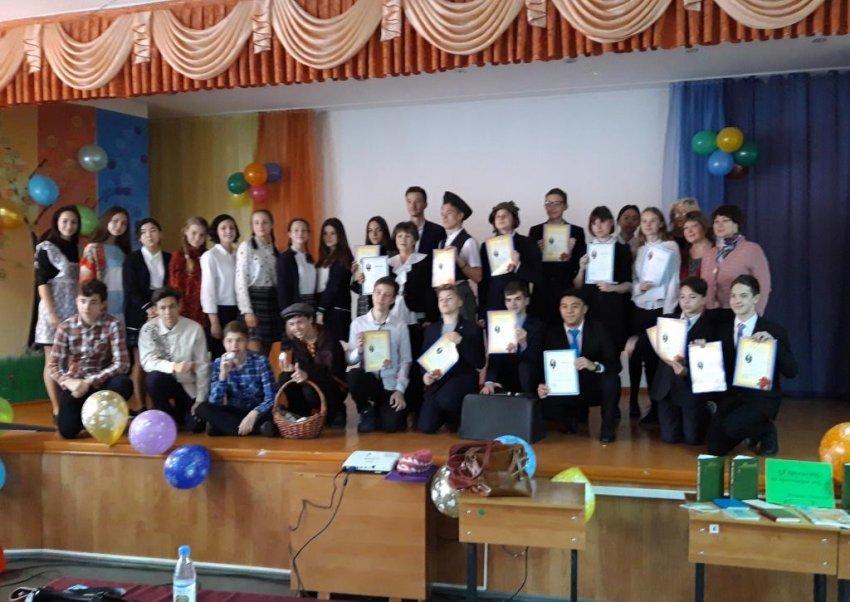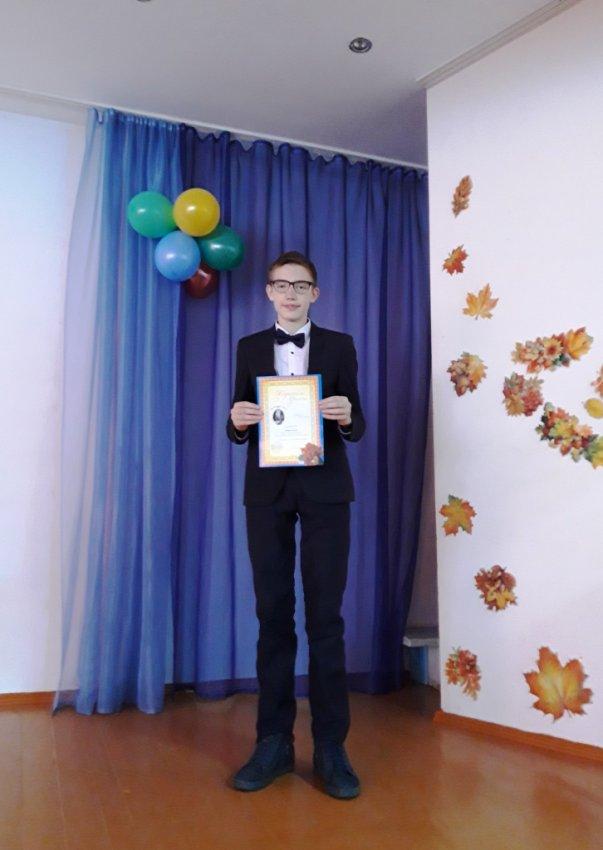09
Желтоқсан
2019
Городской конкурс «Чистяковские чтения»
 Великая награда для любого автора остаться в памяти народной хотя бы одной строкой. Поэт Чистяков еще при жизни заслужил признание. Не забыт он и после смерти.
Великая награда для любого автора остаться в памяти народной хотя бы одной строкой. Поэт Чистяков еще при жизни заслужил признание. Не забыт он и после смерти.
27 ноября 2019г в здании школы-гимназии №10 было людно и празднично. Учащиеся, преподаватели, библиотекари школ города, друзья поэта и любители творчества Михаила Чистякова собрались на «Чистяковские чтения».
Особый интерес вызвал конкурс чтецов, в котором приняли участие около 140 учащихся школ города. Победители были награждены грамотами Матвеевой Натальей – членом союза писателей России, председателем литературного обьединения ВКО «Звено Алтая».
Ученик 9а класса нашей школы Ананьев Богдан занял 3 место в конкурсе.

Поздравляем Ананьева Богдана!